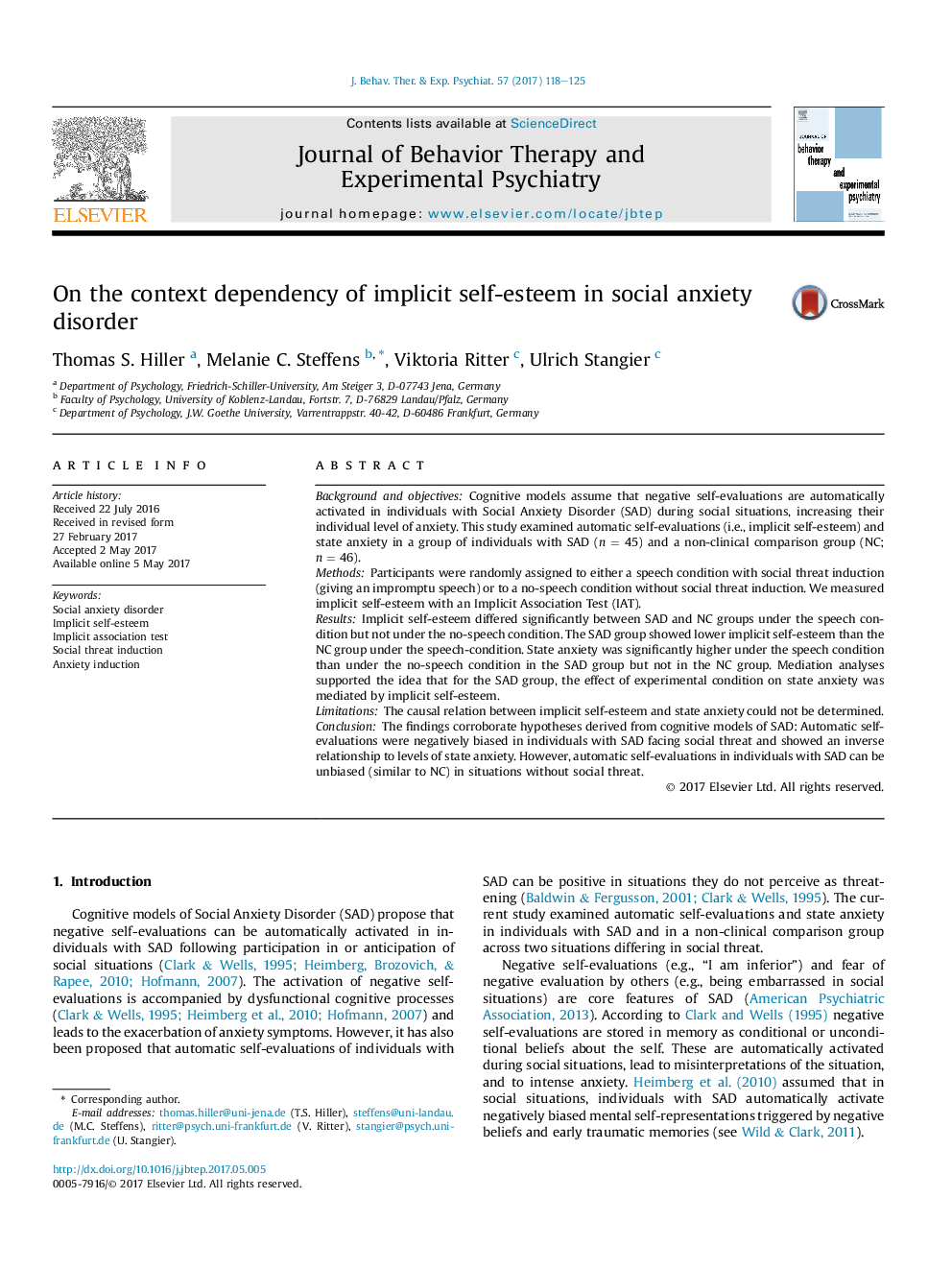| کد مقاله | کد نشریه | سال انتشار | مقاله انگلیسی | نسخه تمام متن |
|---|---|---|---|---|
| 5039026 | 1473059 | 2017 | 8 صفحه PDF | دانلود رایگان |
- Compared participants with social anxiety disorder (SAD) to participants without mental disorders (NC).
- The experiment included a control situation and a social-threat induction.
- Implicit self-esteem did not differ between groups in the control situation.
- Under social threat, implicit self-esteem in SAD participants was lower than in NC.
Background and objectivesCognitive models assume that negative self-evaluations are automatically activated in individuals with Social Anxiety Disorder (SAD) during social situations, increasing their individual level of anxiety. This study examined automatic self-evaluations (i.e., implicit self-esteem) and state anxiety in a group of individuals with SAD (n = 45) and a non-clinical comparison group (NC; n = 46).MethodsParticipants were randomly assigned to either a speech condition with social threat induction (giving an impromptu speech) or to a no-speech condition without social threat induction. We measured implicit self-esteem with an Implicit Association Test (IAT).ResultsImplicit self-esteem differed significantly between SAD and NC groups under the speech condition but not under the no-speech condition. The SAD group showed lower implicit self-esteem than the NC group under the speech-condition. State anxiety was significantly higher under the speech condition than under the no-speech condition in the SAD group but not in the NC group. Mediation analyses supported the idea that for the SAD group, the effect of experimental condition on state anxiety was mediated by implicit self-esteem.LimitationsThe causal relation between implicit self-esteem and state anxiety could not be determined.ConclusionThe findings corroborate hypotheses derived from cognitive models of SAD: Automatic self-evaluations were negatively biased in individuals with SAD facing social threat and showed an inverse relationship to levels of state anxiety. However, automatic self-evaluations in individuals with SAD can be unbiased (similar to NC) in situations without social threat.
Journal: Journal of Behavior Therapy and Experimental Psychiatry - Volume 57, December 2017, Pages 118-125
